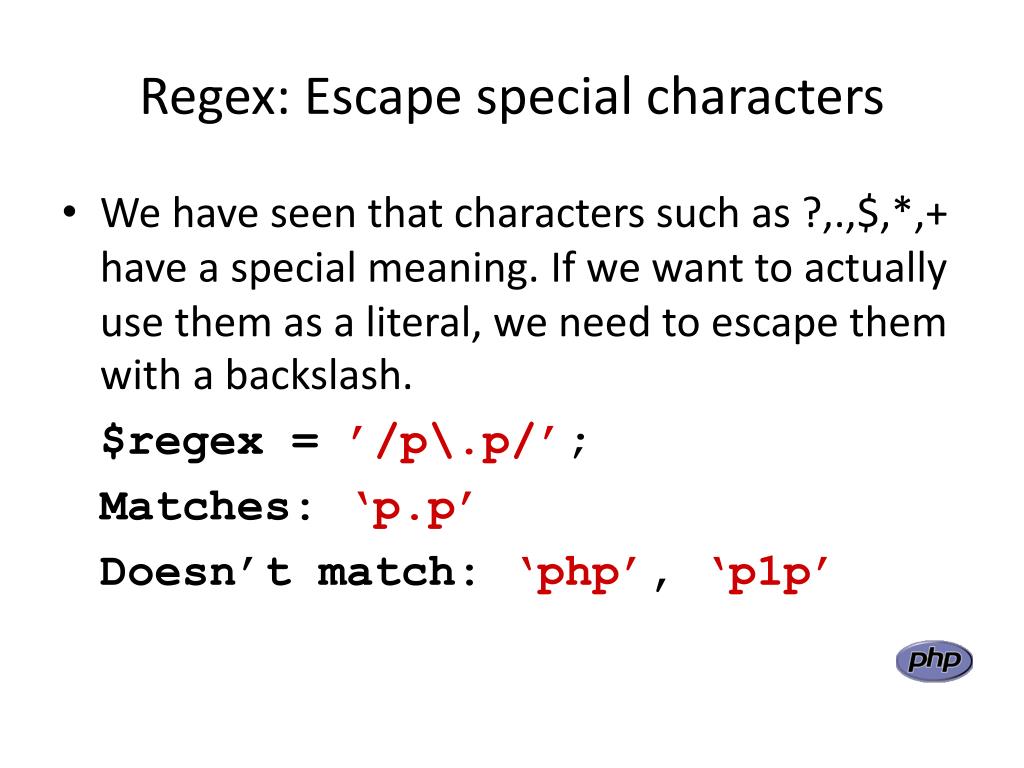
Note that this may be a problem if you are precompilingĮlixir, see the "Precompilation" section for more information.Ī Regex is represented internally as the Regex struct. Regular expressions created via sigils are pre-compiled and stored ~r (see Kernel.sigil_r/2) or ~R (see Kernel.sigil_R/2): # A simple regular expression that matches foo anywhere in the string ~r/foo/ # A regular expression with case insensitive and Unicode options ~r/foo/iu Say you want to to search for string (s) but the regex engine. Regular expressions in Elixir can be created using the sigils Most regular expression engines support more than one way to escape many characters. Challenge: Some characters have a special meaning in Python strings and regular expressions. This process is straightforward for a regular character such as a number or letter, but what if you're searching for a character that has special meaning in code, such as an *? To tell the interpreter that you mean the literal character * instead of the wildcard property of *, you "escape" the character by placing a \ in front of it.Regex is based on PCRE (Perl Compatible Regular Expressions) andīuilt on top of Erlang's :re module. Some flavors also support the QE escape sequence.

Regular Expressions are typically used to search for characters or sequences of characters. Escaping a single metacharacter with a backslash works in all regular expression flavors. The regular expression suggested by the OP used a couple of non-standard extensions, so it didn't work with sed, but you don't need them: I use sed -i to replace the port value in a xml file, But I don't know how escape the regex, my regex is below. Returns a new escaped string with the same or compatible encoding.

So, for people like me, here is a Cheatsheet for the Regular Expressions Cheatsheet, Part VI: Escape Sequences Escapes any characters that would have special meaning in a regular expression. That fleeting moment of glory faded once I decided to brush up on regular expressions and landed on the encouragingly-named Regular Expressions Cheatsheet. "Ah! I should use Regular Expressions for this!" I thought in triumph, impressed that I even knew what regular expressions were. This online regex escape tool will escape all special characters with a backslash so you can put your Text / String / Pattern in a regular expression - The online escaper uses the PHP function pregquote ().
#REGEX ESCAPE CODE#
I was recently doing a code challenge for a job interview that required me to strip out all nonalphabetic characters. Escape converts a string so that the regular expression engine will interpret any metacharacters that it may contain as character literals.


 0 kommentar(er)
0 kommentar(er)
